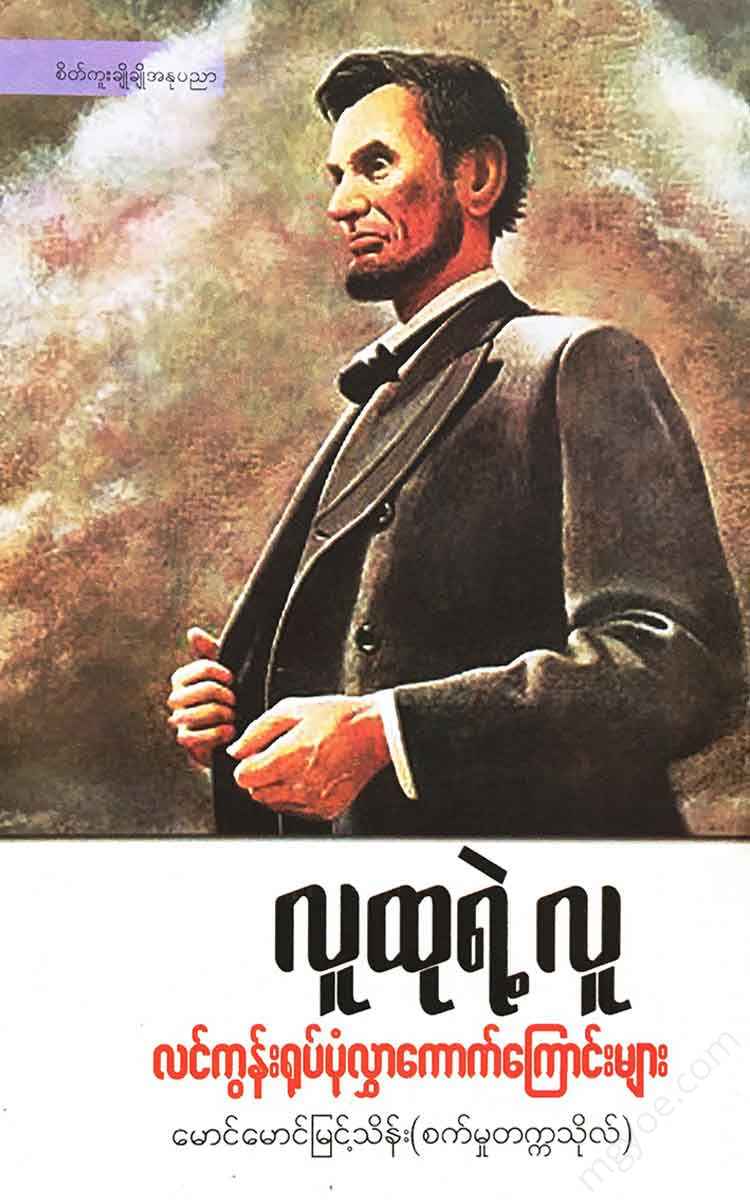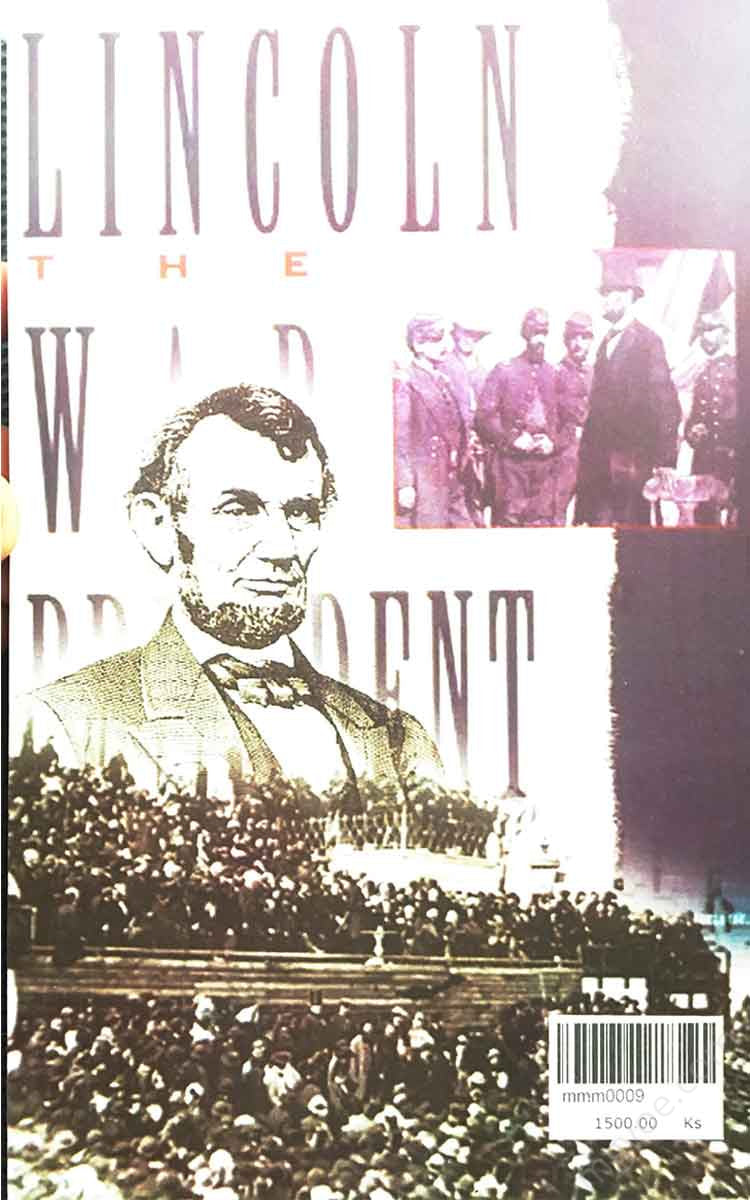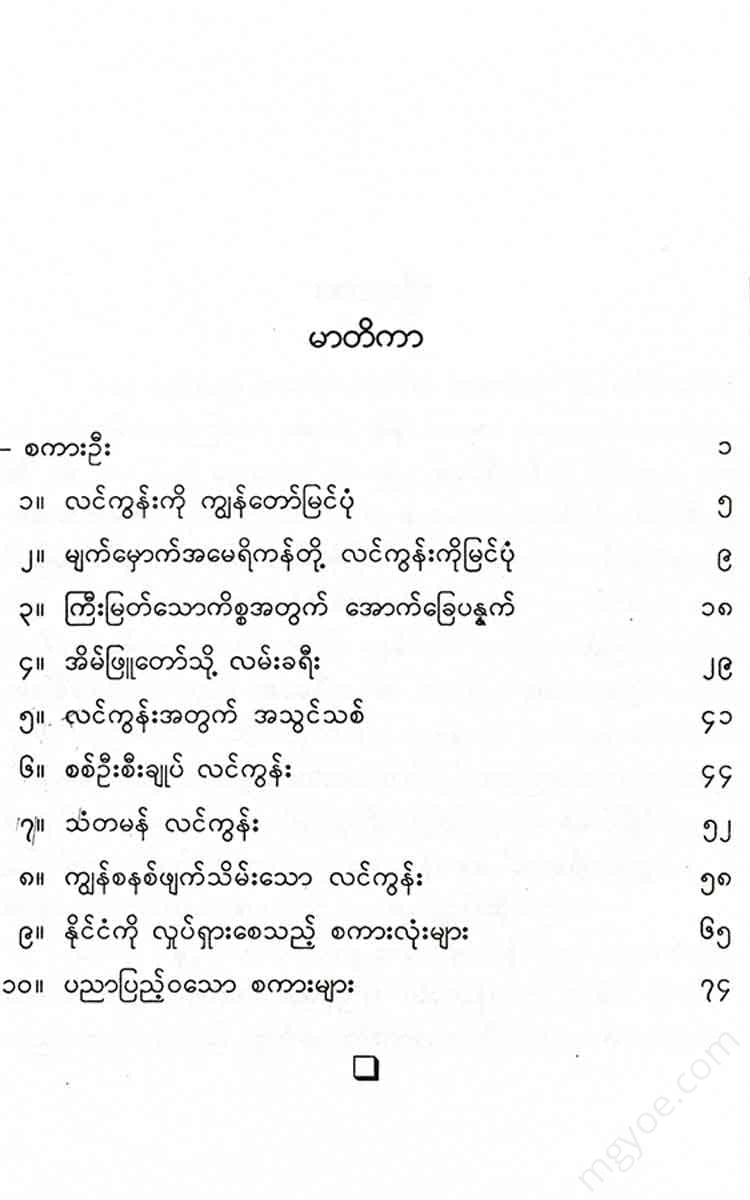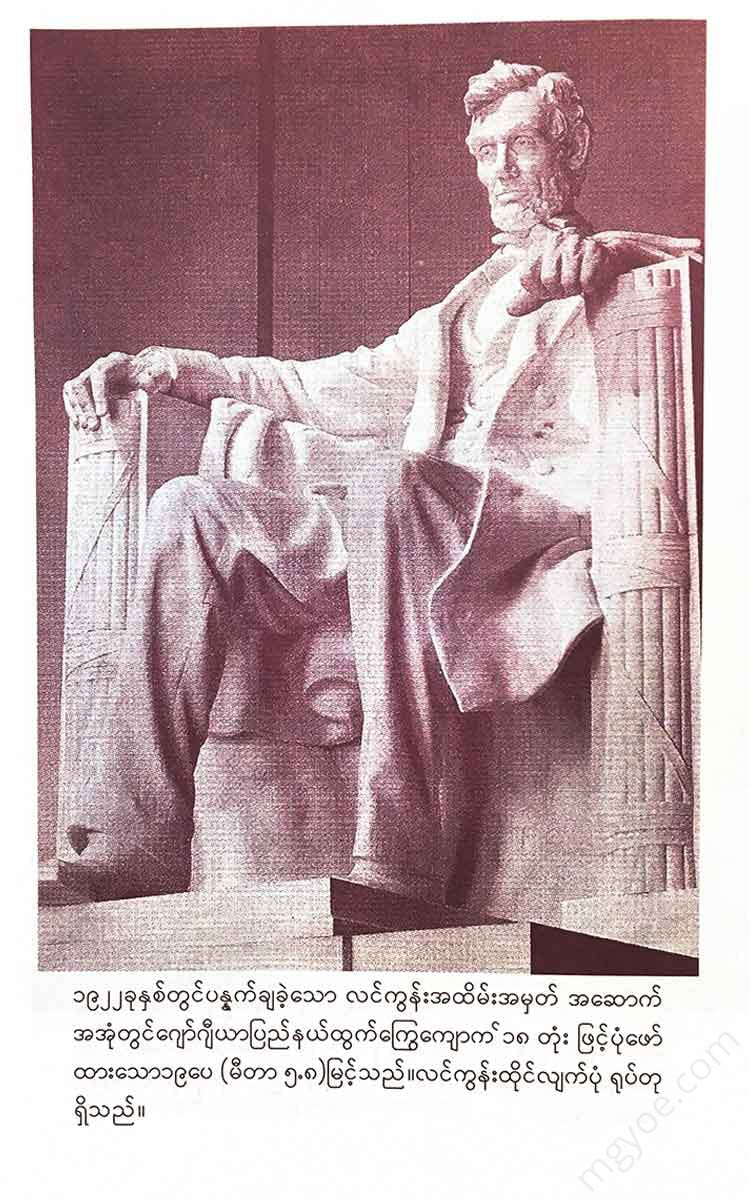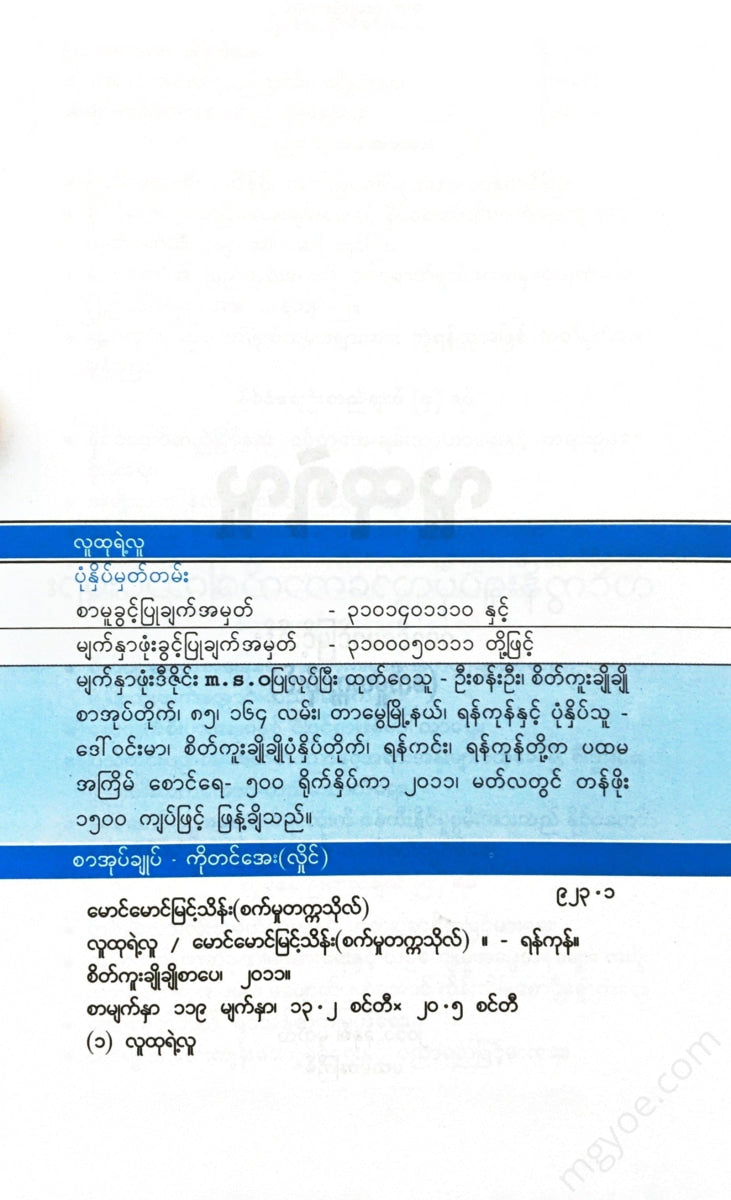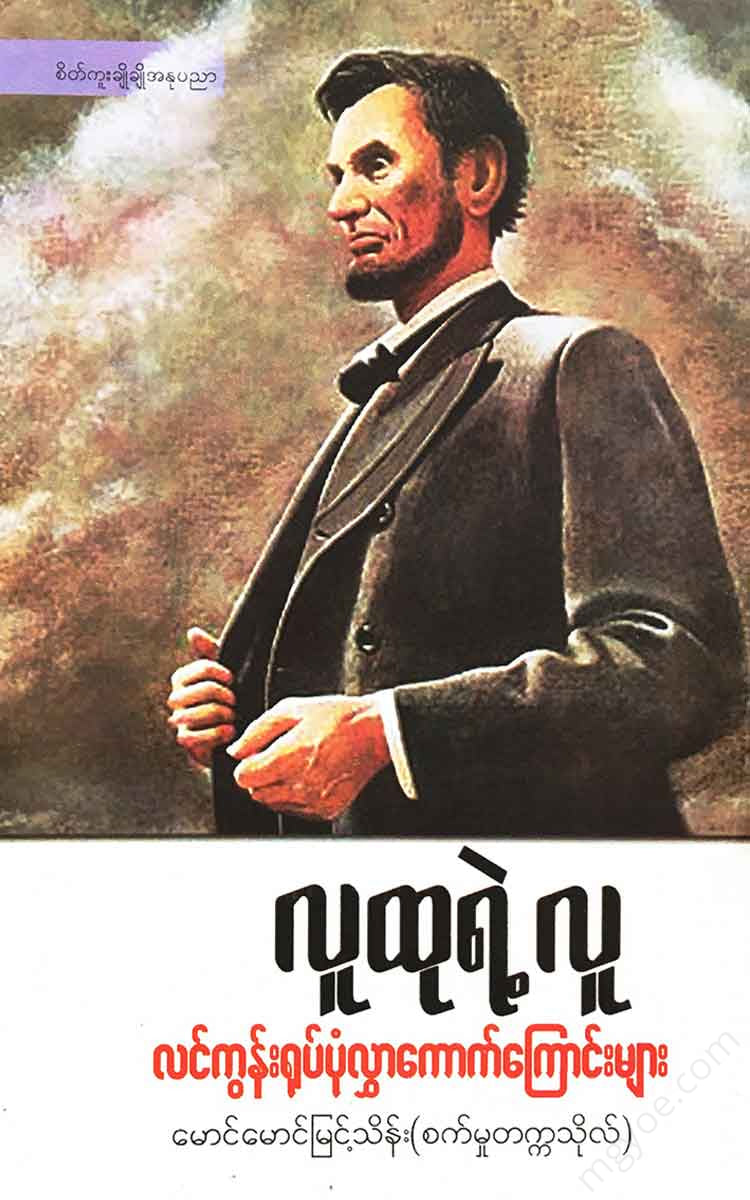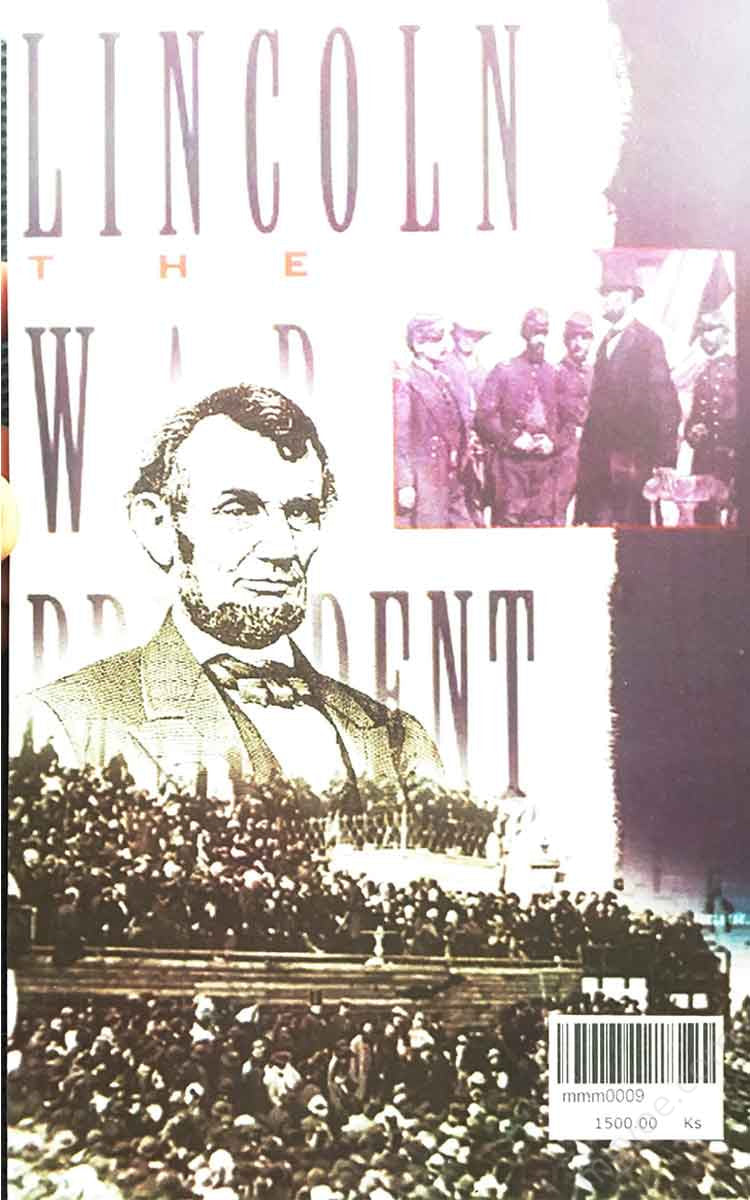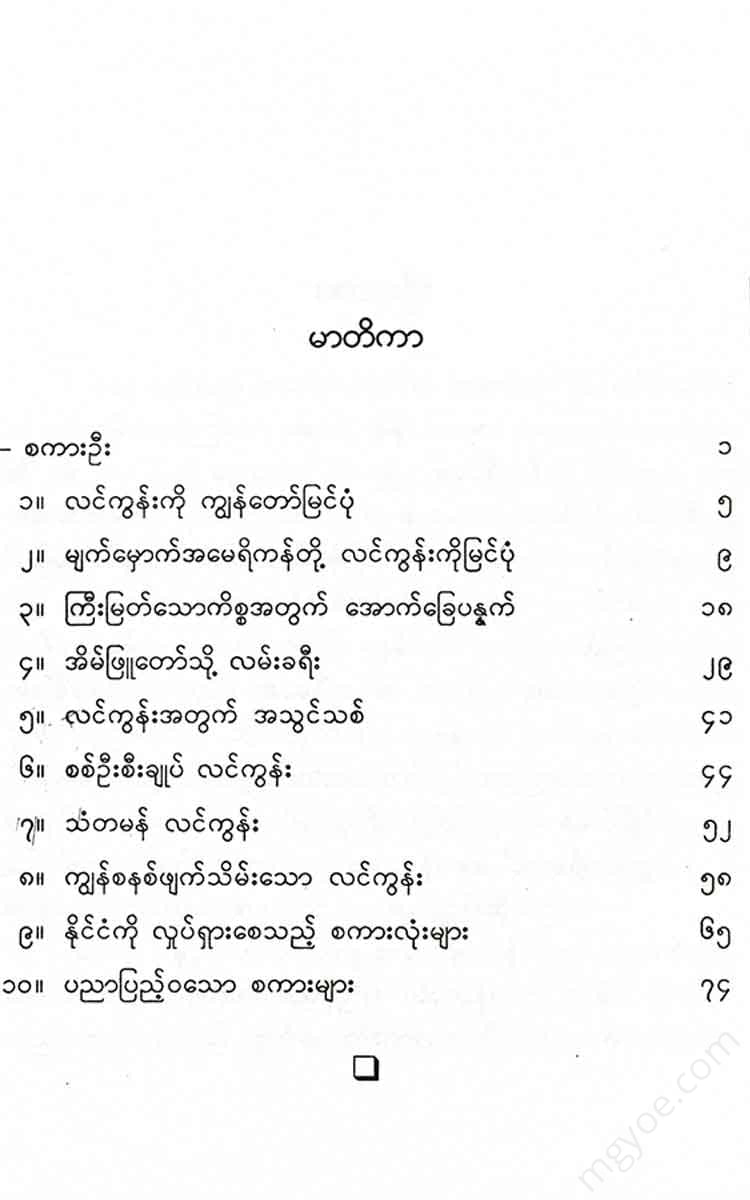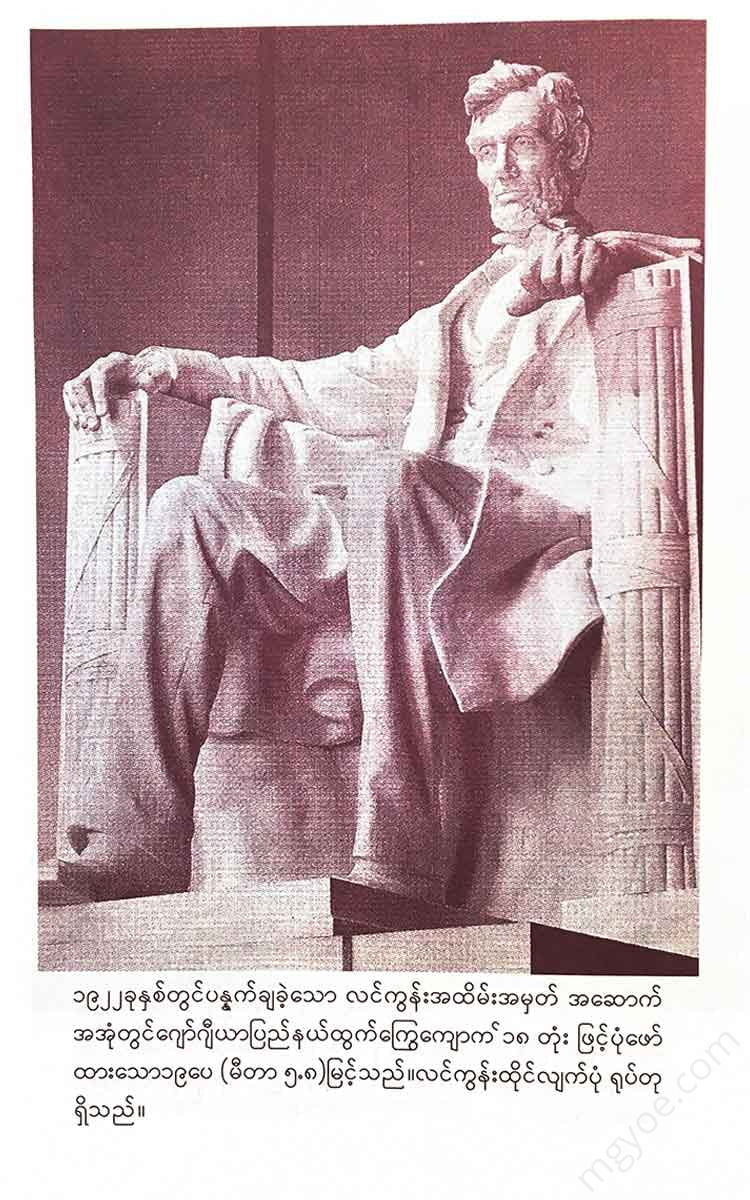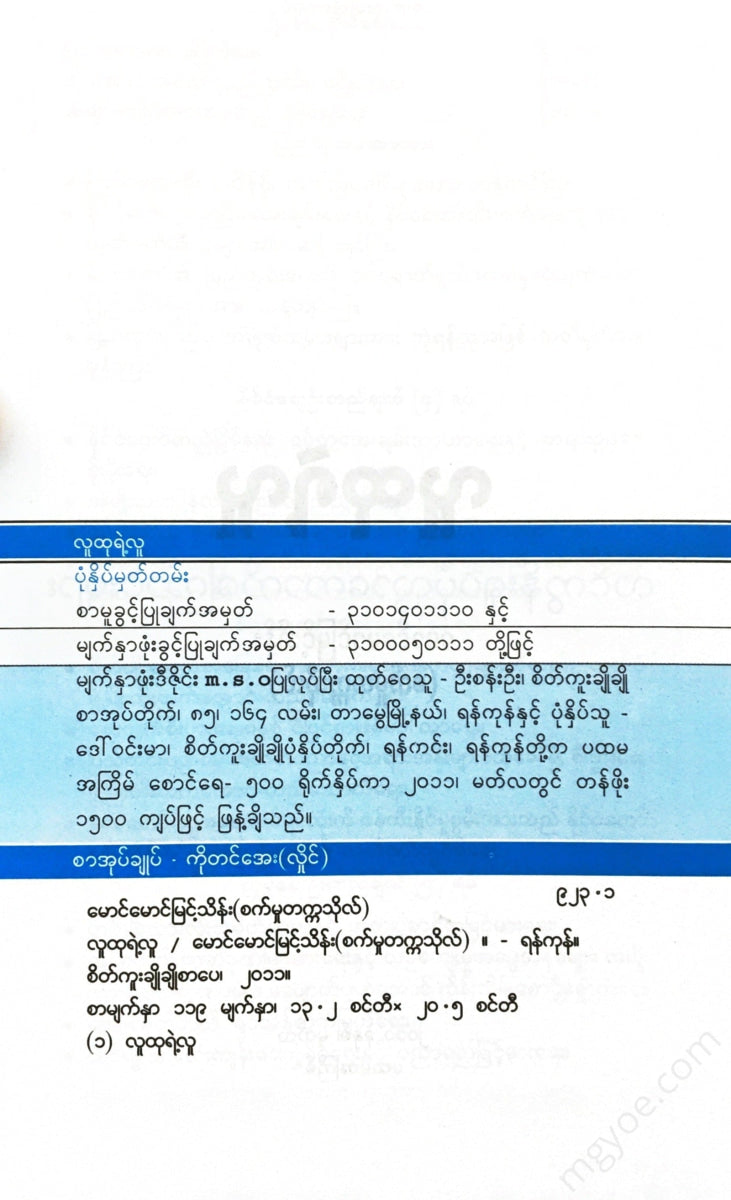စိတ်ကူးချိုချိုစာပေ
Maung Maung Myint Thein (University of Technology) - Outlines of the People's Portrait of Lincoln
Maung Maung Myint Thein (University of Technology) - Outlines of the People's Portrait of Lincoln
Couldn't load pickup availability
How I see Lincoln
Among the great men of history, Abraham Lincoln stands out as the true American icon. Born to poor parents on the harsh frontier, his rise to prominence is nothing short of inspiring. Lincoln continued to grow and reinvent himself throughout his life. Even after 200 years, we still look to him for guidance. In truth, we have no better way to build our lives than by emulating our 16th president. He was a man of unwavering American ambition, yet one who was so determined to uphold his integrity that he would not compromise.
Our Lincoln is never boring. He is a simpleton, a hard-to-understand man, an unskilled laborer, a follower, a divisive man, a practical man, a visionary, and so on. Just when we think we understand him, he takes on a different form than we think. He is a man who cannot be confined. There is a Lincoln for every time and every situation.
Scholars find raw material in Lincoln’s many facets. They examine the essence of his life. They reveal the deeper meaning of his tragic end. How did his racial vision develop? Why did he take such a cautious approach to the abolition of slavery? Was it only because of his military success and the need for foreign aid? When did he begin to embrace the idea of giving us full citizenship? Could his Reconstruction program have reorganized the South and the North while giving us legal equality? Only Lincoln could have steered us away from the tragic path of race relations that followed after his death. As the African-American scholar John Hodges Franklin, considered a guru of American historians, said, “Of all the American presidents, Lincoln was the only one who spent his nights awake thinking about the fate of his people.”
Lincoln is now loved by almost all of his fellow citizens, but during his lifetime he was not a man of many seasons and occasions. Many Southerners and abolitionists disliked him. Frederick Douglass, a former slave who became an abolitionist, writer, and political reformer (who died a martyr in England), criticized Lincoln for being too soft on the abolitionist cause. He believed that Lincoln was too lenient on the slave-holding border states that had not participated in the Southern rebellion. Douglass later realized Lincoln's political cunning. President Lincoln was a master at understanding how quickly and to what extent he could persuade Americans to accept abolition.
Always ready to learn, Lincoln invited his opponents to the White House. He valued their honesty. Among them was Douglas. Another was Anna Dickens. She was a Quaker abolitionist. She was a leading advocate for women's rights. She greatly admired Lincoln. But she attacked Lincoln because he did not support the treason trial of the arrogant political schemer, General George B. McLellan. Lincoln listened respectfully to all walks of life in America. He listened to everyone, from Negro abolitionists to Quakers to powerful members of his cabinet to his political opponents. But he made the important decisions alone.
As a leader, Lincoln was very cautious. He was constantly testing the political winds. He changed his mind frequently. In the modern words of the famous historian James Hayton, he was a self-effacing man. But the great social scientist W. E. B. Boyce believes that Lincoln’s “greatness was in constant flux” is a fundamental truth.
What I like most about Lincoln is his noble character. This is what historian John Stafford refers to in his description of the 19th-century natural self-reliance. Because his ideology was based on the ideas of equality and freedom, you can imagine everything from Lincoln. He could have solved the racial problem. He could have given women equal rights. He was a better American hero than anyone else.
Lincoln and his wife, Mary Todd Lincoln, set off on a sunny spring day shortly before his assassination. The Civil War had just ended. Optimism was rife. Lincoln looked to the future. He told his wife that he hoped to travel to Europe and beyond when his presidency ended. That was not to be. But in a grander sense, Lincoln had traveled the world. The fact that an ordinary person can reinvent himself is enough to inspire us.
